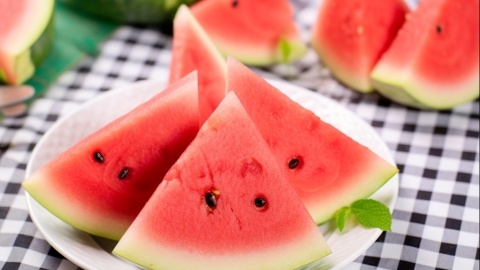Can patients with gastritis and gastric erosion eat watermelon?
Generally, during the acute phase of gastritis and gastric erosion, it is advisable to avoid eating watermelon to prevent worsening of the condition. However, during the recovery phase of gastritis and gastric erosion, moderate consumption of watermelon at room temperature is acceptable. Detailed explanations are as follows:

During the acute phase of gastritis and gastric erosion, patients may experience symptoms such as gastric mucosal congestion, edema, and erosion. At this time, the resistance of the gastric mucosa is weak and easily irritated; therefore, eating watermelon is not recommended. Watermelon is a cold-natured food that may irritate the gastric mucosa, leading to excessive secretion of gastric acid and worsening of mucosal damage. Additionally, its high sugar content may increase intestinal osmotic pressure, further irritating the intestines and hindering the repair of the gastric mucosa and the resolution of inflammation.
If patients with gastritis and gastric erosion are in the recovery phase and do not exhibit significant discomfort symptoms, such as stomach pain, bloating, or acid reflux, they may consume moderate amounts of watermelon at room temperature. Watermelon contains rich nutrients that help replenish essential substances for the body and promote overall health. Moreover, watermelon has a function of moistening the intestines and relieving constipation; moderate consumption can stimulate gastrointestinal motility, aiding in digestion and nutrient absorption.
Patients with gastritis and gastric erosion should eat at regular intervals and in appropriate quantities, avoiding overeating, which helps reduce the gastrointestinal burden.








